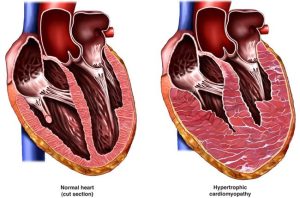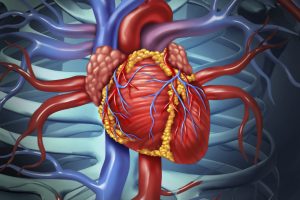Introduction
In the intricate landscape of cardiac health, inherited heart diseases stand as a testament to the intricate interplay between genetics and cardiovascular well-being. These conditions, stemming from genetic anomalies, encompass a diverse array of ailments, each with its prevalence, impact on individuals, and familial implications. Delving into the world of inherited heart diseases unveils a tapestry of challenges, advancements, and the profound significance of seeking genetic treatments. Understanding their prevalence and the genetic underpinnings driving these conditions is pivotal in navigating the quest for more targeted and effective treatments.
Inherited Heart Diseases
Types and Prevalence
Inherited heart diseases encompass a spectrum of ailments like hypertrophic cardiomyopathy (HCM), dilated cardiomyopathy (DCM), arrhythmogenic cardiomyopathy (ACM), and familial hypercholesterolemia (FH), among others. Their prevalence varies among populations, with HCM being the most common inherited cardiac condition, affecting approximately 1 in 500 individuals globally. DCM affects 1 in 2,500 individuals, while ACM is rarer, occurring in about 1 in 5,000 individuals.
Impact on Individuals
The impact of these diseases is far-reaching, not just on the affected individual but on entire families. The onset and severity of symptoms can differ widely, from subtle palpitations to life-threatening arrhythmias or heart failure. Psychosocial implications, including anxiety, depression, and altered quality of life, are also common among those living with inherited heart diseases.

Significance of Genetic Treatment
Advances in Genetic Understanding
Understanding the genetic underpinnings of these conditions has been pivotal in unraveling their complexities. Genetic testing now plays a crucial role in diagnosis, risk assessment, and familial screening. Identifying specific genetic mutations associated with these diseases’ aids in prognostication and tailoring treatment strategies.
Precision Medicine and Targeted Therapies
Advancements in genetic research have paved the way for precision medicine approaches. Targeted therapies, focusing on correcting or mitigating the effects of specific genetic mutations, are under exploration. Gene editing technologies like CRISPR-Cas9 hold promise in correcting genetic abnormalities associated with these diseases.

Challenges and Ethical Considerations
However, the road to genetic treatments for inherited heart diseases is laden with challenges. Ethical considerations surrounding gene editing, long-term safety, accessibility, and affordability of these treatments pose significant hurdles. Moreover, the multifactorial nature of these diseases necessitates a holistic approach, combining genetic interventions with conventional treatments like medications, lifestyle modifications, and implantable devices.

Conclusion
Despite challenges, the quest for genetic treatments for inherited heart diseases remains a beacon of hope. Collaborative efforts between researchers, clinicians, and affected communities are crucial in advancing knowledge and treatment options. Long-term studies assessing the efficacy, safety, and ethical implications of genetic interventions are imperative. Inherited heart diseases represent a complex interplay of genetics and cardiovascular health. Their impact on individuals and families underscores the urgency to explore genetic treatments. While challenges persist, advancements in genetic understanding offer promising avenues for precision medicine approaches. Integrating genetic insights with conventional therapies heralds a new era in managing these conditions, fostering a future where personalized treatments alleviate the burden of inherited heart diseases.




